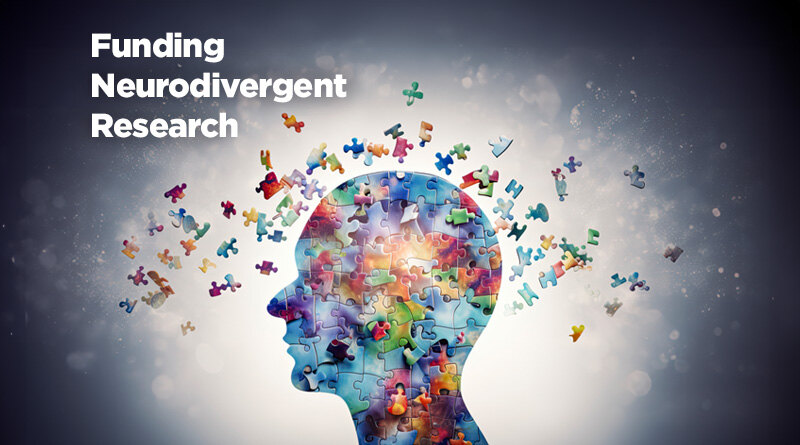Expanding Support for Autism and ADHD with Grant Funding
Finding grant funding for Autism Spectrum Disorder (ASD) and Attention Deficit Hyperactivity Disorder (ADHD) research and support is essential for advancing understanding and improving resources for those affected. These are two of the most common neurodevelopmental conditions diagnosed in childhood, each with distinct treatment approaches. Researchers, nonprofits, libraries, and schools rely on grant funding to provide critical studies, educational programs, and community services that enhance the lives of individuals with ASD and ADHD.
GrantWatch provides grants that support both Autism Spectrum Disorder (ASD) and Attention Deficit Hyperactivity Disorder (ADHD). With a simple keyword search, grant seekers can easily find a variety of funding opportunities. Additionally, many of these grants are listed under GrantWatch’s Mental Health category, featuring nearly 600 grants, and over 3,800 grants in the Education category.
Autism Spectrum Disorder (“ASD”) and Attention-Deficit Hyperactivity Disorder (“ADHD”)
- ASD is a condition related to brain development that impacts how a person perceives and socializes with others, causing problems with social interactions and communication. The disorder also includes limited and repetitive patterns of behavior. The term “spectrum” in ASD refers to the varied range of symptoms and severity as well as the wide range of diagnoses and treatments, depending on each individual case.
- ASD includes conditions not previously considered to be ‘connected.’ Autism and Asperger’s syndrome are two of the most common ‘labels’ for this disorder. However, many still use the term “Asperger’s” to define the entire spectrum of the disorder, though that level of the disorder is at the ‘mild end’ of ASD. (mayoclinic.org, “Autism Spectrum Disorder“)
- ADHD is a common neurodevelopmental condition that affects children and adults worldwide. Usually diagnosed in childhood and often lasting into adulthood, it is characterized by a persistent pattern of inattention and/or hyperactivity/mania that impacts daily activities and relationships.
- Inattention- having difficulty paying attention.
- Hyperactivity- having too much energy and/or moving or talking too much.
- Impulsivity- acting without thinking or having difficulty with self-control. (trisadhd.com, “About ADHD and How to Treat it“)
Grants for Autism and ADHD Research and Resources
1. Grants and In-kind Support to Rural Libraries
Grants up to $20,000 and in-kind support to small rural libraries. The goal of the program is to help libraries better serve people with disabilities. Autism is one example of a mental health disability.
2. Post-Doctoral Fellowship Funding for Research
Funding research for post-doctoral fellowships for mental and behavioral health care for children and youth. Funding supports research that will directly benefit children and their families for specific behavioral health issues, including child and adolescent ADHD, depression, and general mental health.
3. Grants to Nonprofits for Programs
There are grants of $5,000 to nonprofits for programs to improve the lives of children and youth with autism. Funding is for numerous items and activities, including books, equipment, camps, music programs, and other programs that directly address autism with early diagnosis and/or treatment.
4. Contracts for Services for Health-Related Research
Contracts for nonprofits, for-profits, IHEs, and government agencies for research for health-related projects. Special funding consideration will be for research for individuals with intellectual and developmental disabilities and cognitive impairments.
5. Funding to Researchers and Educational Institutions
Grants to researchers, educational institutions, and community groups for projects to improve the mental health of individuals. Funding is for research and programs to benefit individuals on the autism spectrum and those with bipolar disorder.
6. Grants to Nonprofits for Programs
Grants up to $25,000 to nonprofits for programs and activities addressing the areas of autism, arts and culture, health and human services, literacy, and education.
7. Grants for Crisis Situations
Up to $10,000 to nonprofits for emergency costs, including crisis situations, unexpected loss of financial support, and other catastrophes. Funding is for service delivery by organizations focusing on families, youth, and children.
8 Funds for Youth with Mental Health
Grants to nonprofits and schools for services to benefit young people with mental health issues, learning disabilities, or substance use disorders.
9. Grants to scientists for Collaborative Research
Grants to scientific researchers with Institutions of Higher Education, hospitals, and government research centers to study cognitive and behavioral sciences. Funding addresses learning and augmented intelligence, social psychology, cognitive neuroscience, linguistics, and developmental sciences.
10. Grants to Psychologists for Psychotherapy Research
Grants up to $22,500 to psychologists affiliated with qualified institutions for psychotherapy research projects. Funding supports innovative studies to enhance understanding of how cognitive, emotional, and behavioral changes are promoted through psychotherapy.
About GrantWatch
With over 9,000 grants currently available, GrantWatch.com is the leading grant listing directory. Upgrade to a MemberPlus+ subscription to view the full grant details, including eligibility criteria and application information. For more information, you can also visit the GrantWatch FAQ page. To see the great value of all 20 of the top GrantWatch features, click here. Watch the latest episode of GrantTalk, powered by GrantWatch, with host Libby Hikind. You don’t want to miss this. Visit us on YouTube weekly. Get your copy of The Queen of Grants: From Teacher to Grant Writer to CEO, by Libby Hikind.

